Contemporary Egyptian design celebrated by new brand Don Tanani
Don Tanani’s inaugural collection, designed by Lina Al Orabi, gives traditional Egyptian craftsmanship traditions a contemporary spin
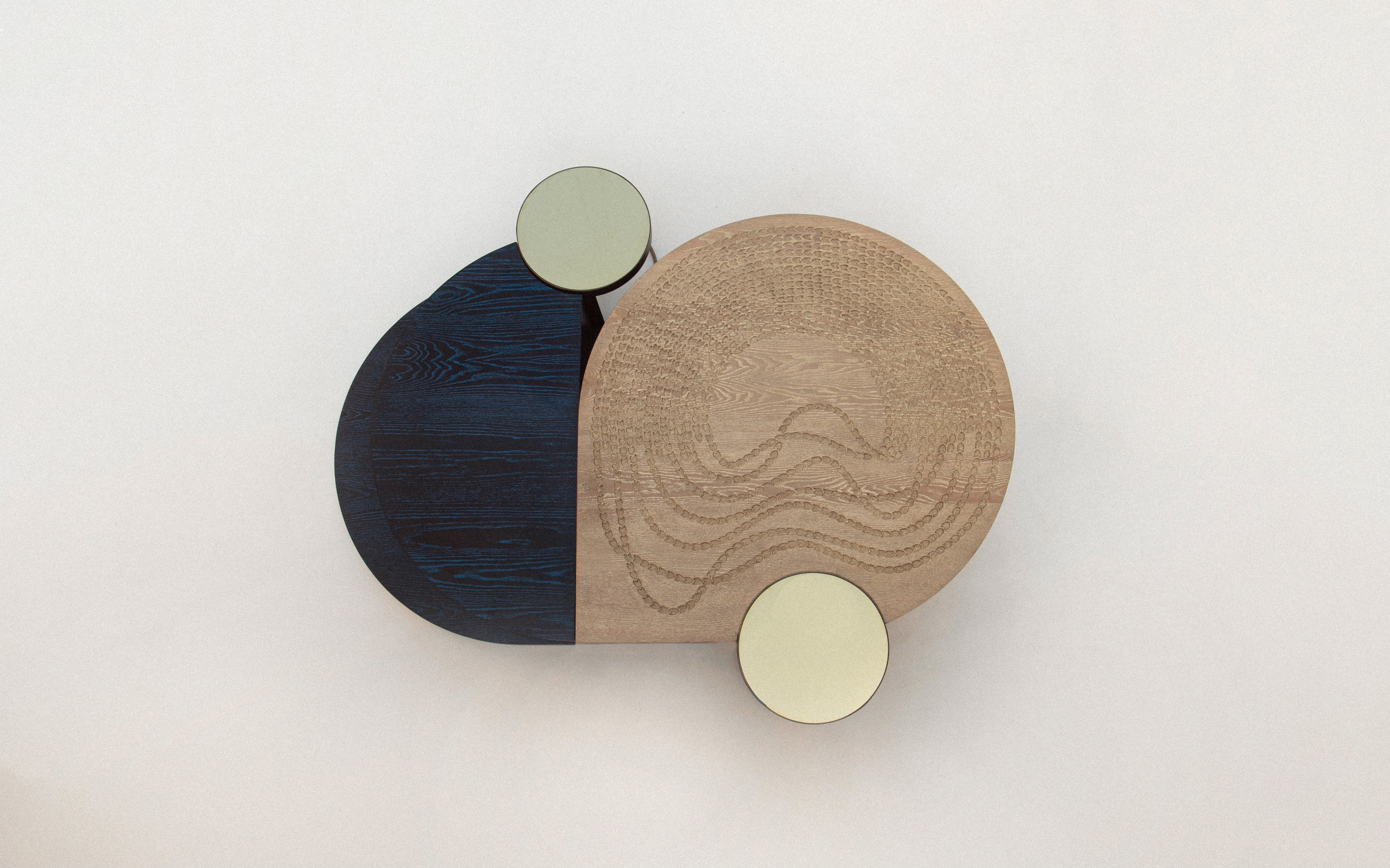
Egyptian interior design firm Living in Interior and wood producers Ar-Co have come together to launch a new vision of contemporary furniture. Working with local designer Lina Al Orabi, Don Tanani is a new brand and design gallery featuring contemporary pieces created to be a timeless interpretation of Egyptian design and identity.
Don Tanani’s inaugural collection features wooden furniture such as tables, consoles and seating defined by curved lines crafted using traditional joinery and carving techniques from ancient Egypt. ‘The brand answers a need in the MENA region and Egyptian design market for elevation in design made in Egypt and the Middle East,’ say its founders, members of the Tanani family. ‘We intend to push the boundary of Egytpian design and functional art; creating products that emulate art.’ The collection will grow in collaboration with more pieces by Egyptian designers.
Egyptian design by Lina El Orabi
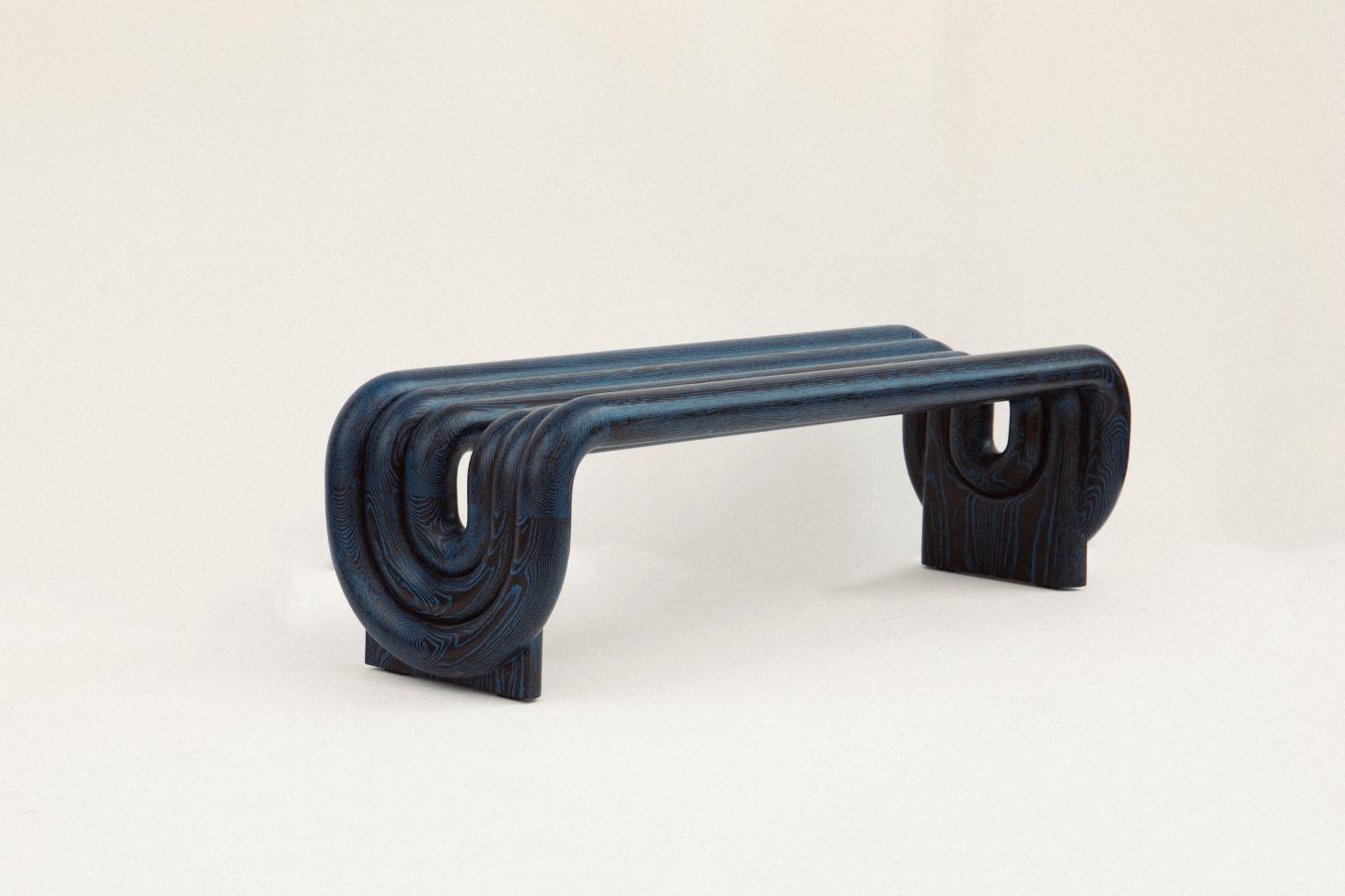
The Ourobobos bench, made of oxidized oak inlaid with blue paint, a technique evoking the way the Ancient Egyptian craftsmen would inlay wood with precious stones
Don Tanani’s debut collection of wooden furniture is created in collaboration with Egyptian designer Lina El Orabi and titled Duality, a name that identifies the company’s contemporary design attitude that is rooted in traditional local craft. ‘In ancient Egypt, objects and art were considered a living image of their subject, preserving their likeness and existing for the afterlife and future generations,’ reads the company’s inaugural design statement. ‘Carving gave static materials warmth, movement and life; encapsulating a moment in time.’
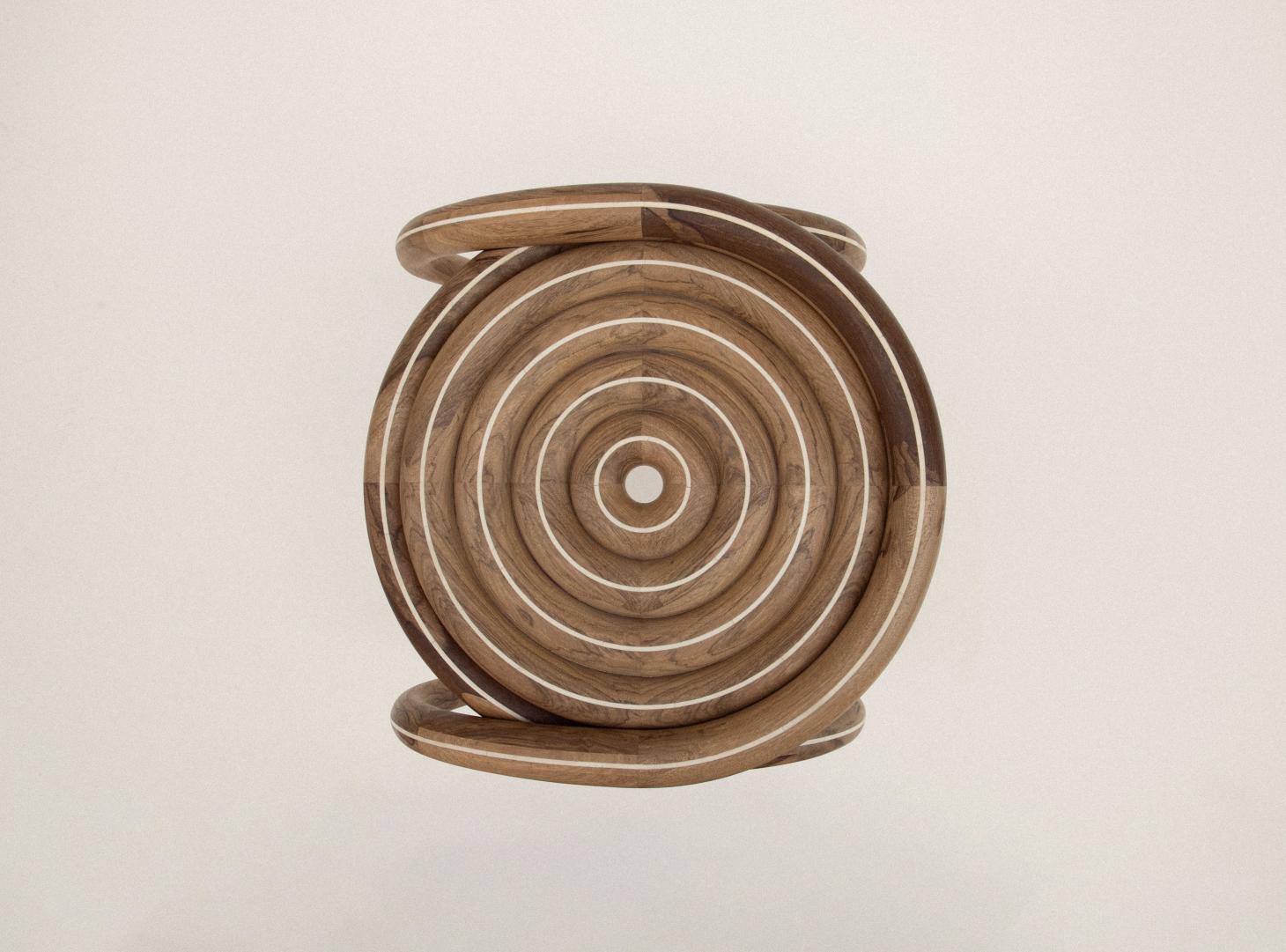
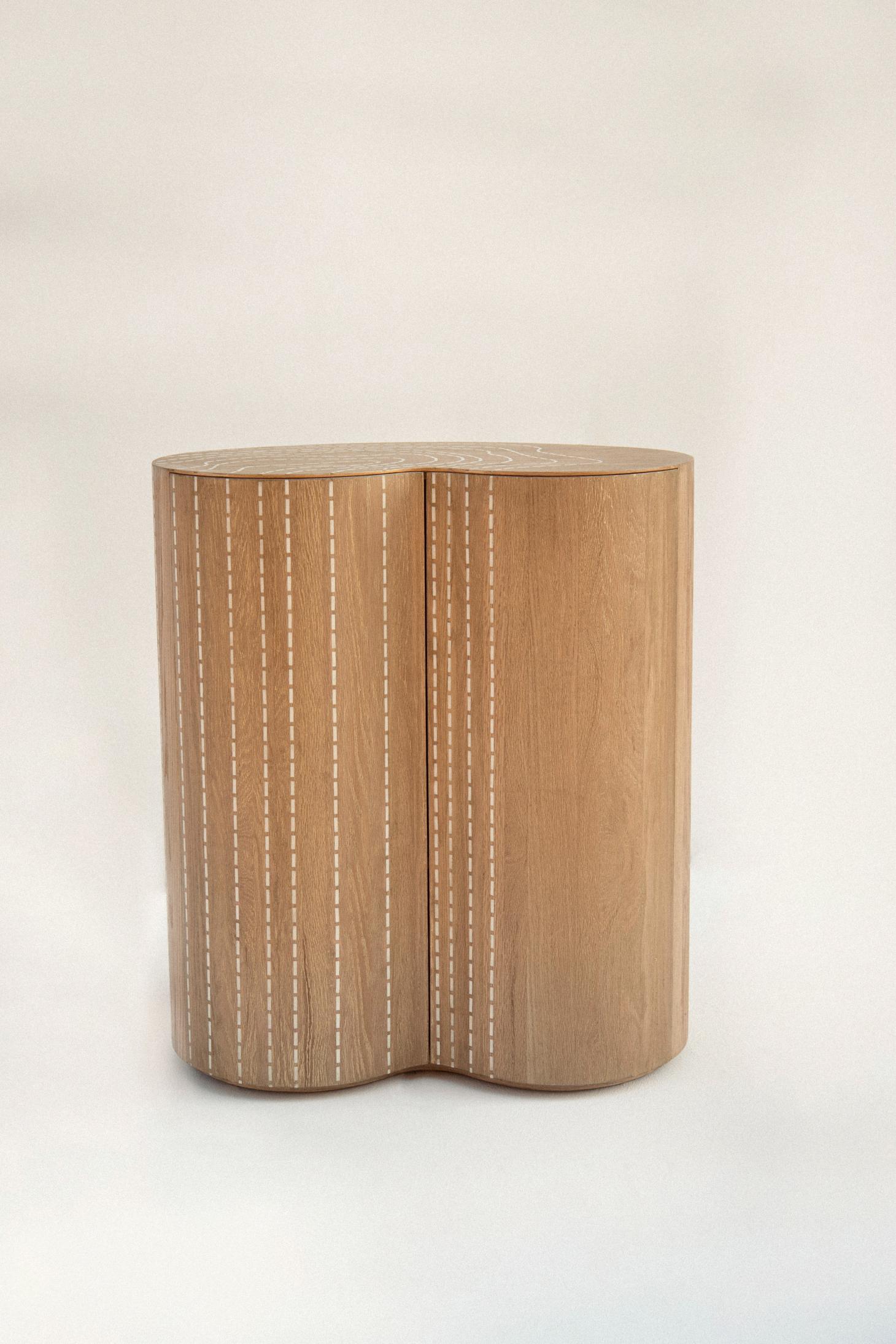
Top, the Apep side table seen from above, representing the coils of the eponymous, serpent-shaped ancient Egyptian demon of chaos. Bottom, the Isfet console cabinet with an inlaid motif created using ancient Egyptian techniques
The sleek wooden pieces feature curved silhouettes and thick volumes, as well as patterns that add lightness to the wooden furniture. The collection combines natural woods with wood veneer techniques replicating those used in ancient Egypt, oxidized and inlaid with camel bone to create visual contrasts. ‘This first collection aims to revive cultural memories and bring centuries of craft and design into the present,’ they conclude.
Two years in the making, the Duality collection marks the beginning of a design journey that aims at elevating Egyptian design, and celebrating local creative talent.
INFORMATION
Wallpaper* Newsletter
Receive our daily digest of inspiration, escapism and design stories from around the world direct to your inbox.
Rosa Bertoli was born in Udine, Italy, and now lives in London. Since 2014, she has been the Design Editor of Wallpaper*, where she oversees design content for the print and online editions, as well as special editorial projects. Through her role at Wallpaper*, she has written extensively about all areas of design. Rosa has been speaker and moderator for various design talks and conferences including London Craft Week, Maison & Objet, The Italian Cultural Institute (London), Clippings, Zaha Hadid Design, Kartell and Frieze Art Fair. Rosa has been on judging panels for the Chart Architecture Award, the Dutch Design Awards and the DesignGuild Marks. She has written for numerous English and Italian language publications, and worked as a content and communication consultant for fashion and design brands.
-
 At Linden Los Angeles, classic New York comfort food gets its due
At Linden Los Angeles, classic New York comfort food gets its dueThe restaurant, inspired by a stretch of boulevard bridging Brooklyn and Queens, honors legacy, community and pleasure
By Carole Dixon Published
-
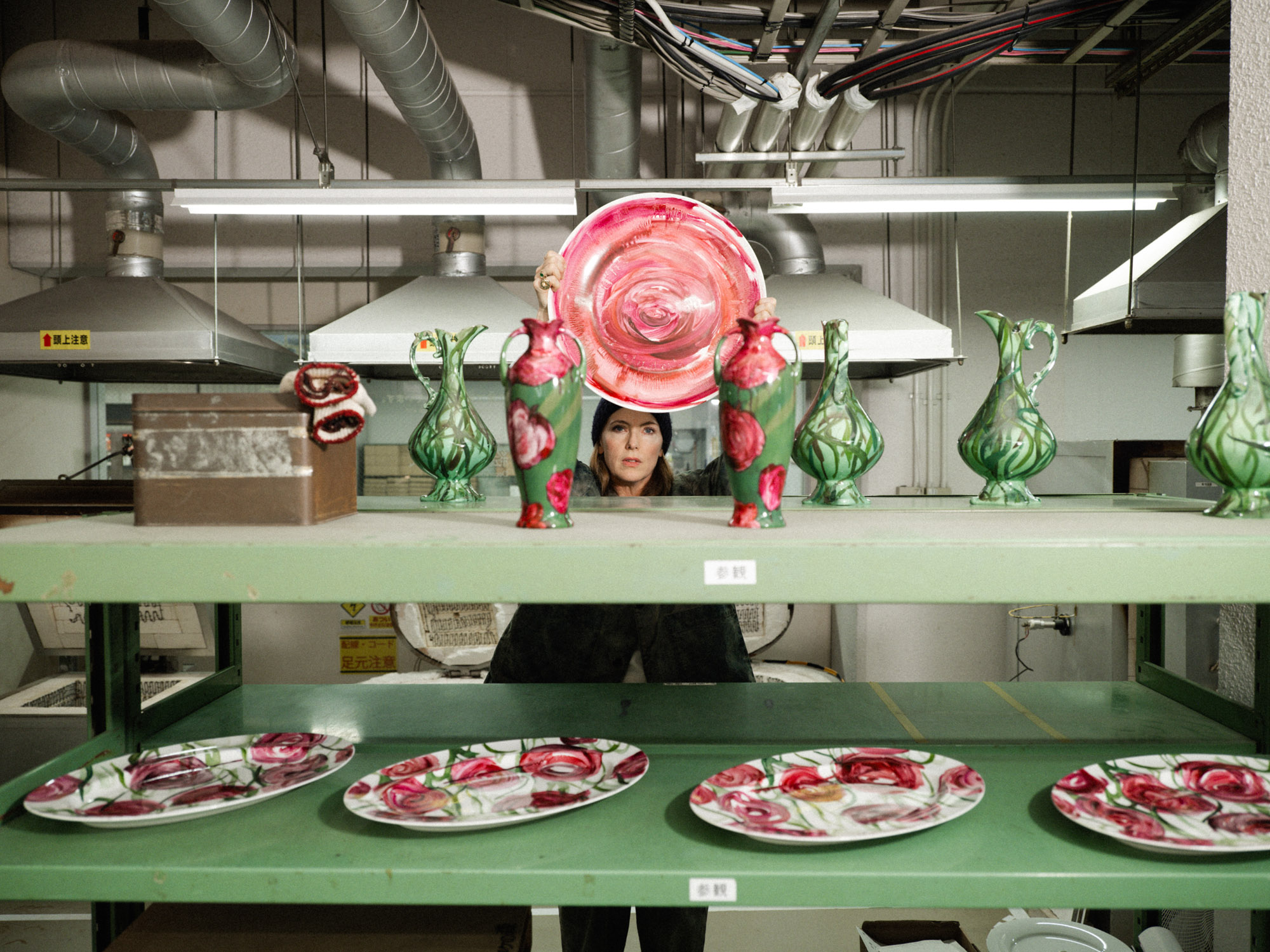 Faye Toogood comes up roses at Milan Design Week 2025
Faye Toogood comes up roses at Milan Design Week 2025Japanese ceramics specialist Noritake’s design collection blossoms with a bold floral series by Faye Toogood
By Danielle Demetriou Published
-
 Tatar Bunar puts Ukrainian heritage front and centre
Tatar Bunar puts Ukrainian heritage front and centreFamily recipes and contemporary design merge at this new east London restaurant by Ukrainian restaurateurs Anna Andriienko and Alex Cooper
By Ben McCormack Published